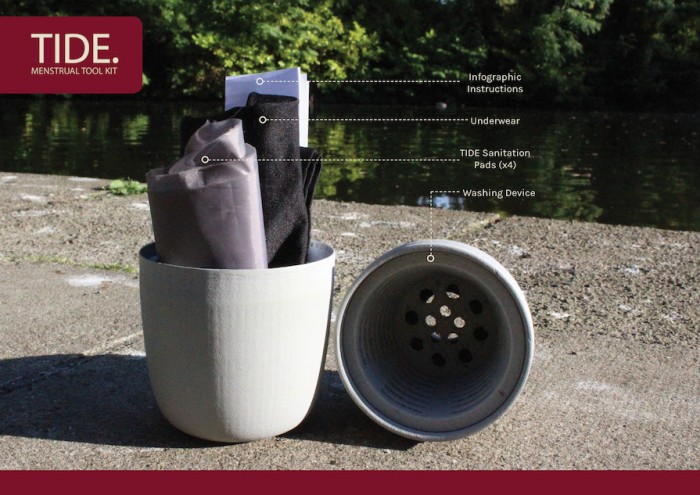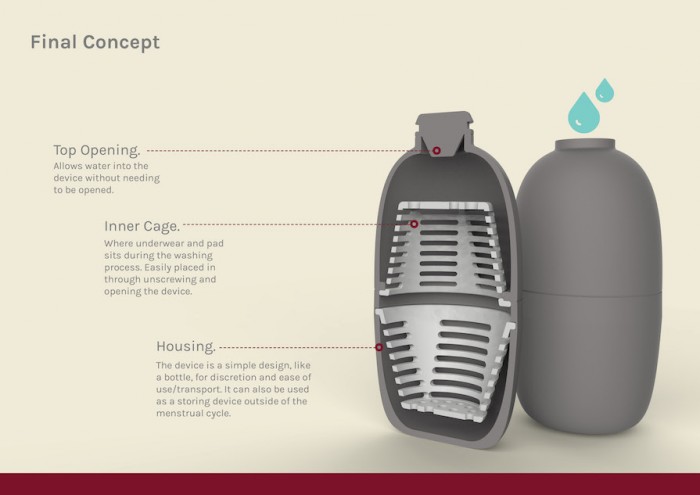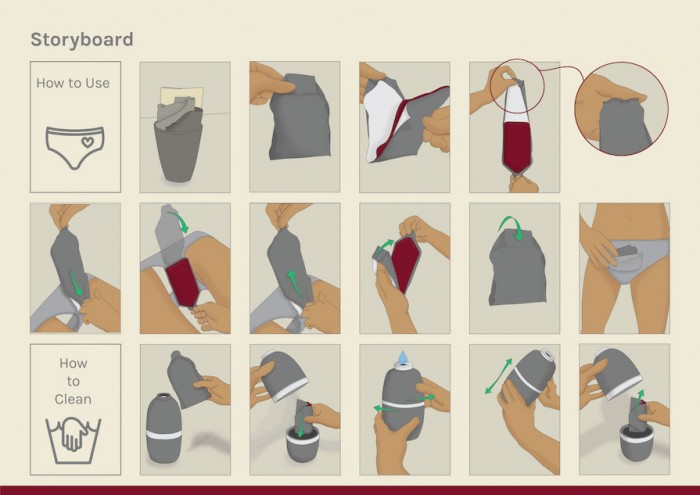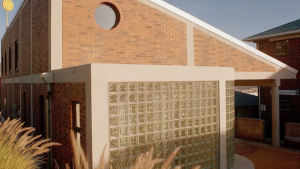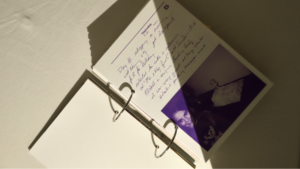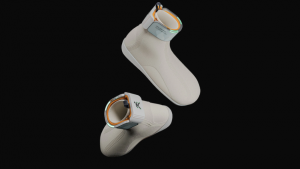How do women cope with their inevitable menstrual cycles when they're forced to flee from their homes? According to a study done by the BMC, there is a severe lack of refugee menstrual supplies, especially in poorer countries. Yet this is still not seen as a pressing global issue.
When a group of four product design students from the Dublin Institute of Technology came across this issue, they decided it was crucial to develop a universal menstrual health solution for refugee women.
Olivia Brock, Jane Devine, Jack Griffin and Rachael Ryan developed a toolkit that would cater to every aspect of menstruation.
Called TIDE, this toolkit was made up of accessible raw materials, and although the first model was a sanitary towel, it became more than that. Instead, the team designed a full toolkit that included a washing apparatus.
Through their research into the refugee crisis they met with displaced women from around the world through refugee organisations. Here's how it works: On each teaching site, the team would set up and show the women how to make use of the toolkits. From this, the women would be taught to sew the pads together and they would be shown how the pads can be reused.
The hand-held washing device has its own built-in internal cage that would allow water to flow in and out through an opening at the top. The washer also doubles as storage for unused pads.
When it comes to the design of the pad, it was important for the women to understand what they were wearing. The pad has three layers and each layer peforms a different task.
The bottom layer of the pad is proof, while the middle layer was created to absorb any liquids. The top layer, on the other hand, was seen as the dry one that touches the skin.
“Through the discussion of experience, common challenges and cultural norms we noticed recurring insights and developed our project around these findings,” wrote the four designers. “We wanted to bring attention to this matter to improve the quality of supplies and general health of women in refuge.”
In 2018, TIDE won the “Where there is no engineer" competition, a design initiative coordinated by the Development Technology Research Group at Dublin Institute of Technology. The program is delivered in partnership with Concern Worldwide, Engineers Ireland and Engineers without Borders Ireland.
Read more:
Swedish clinic designed with the country's refugee population in mind
Three ways designers are preparing for disaster
Refugees are learning to map their world and gain marketable skills in the process

